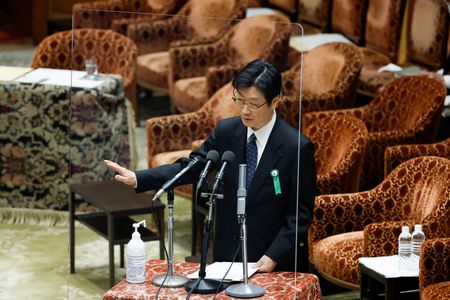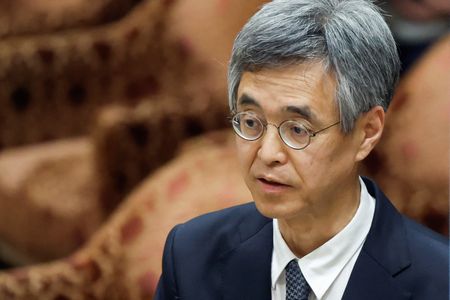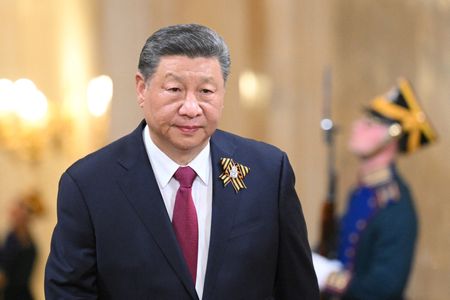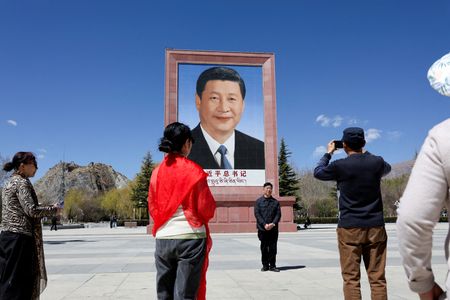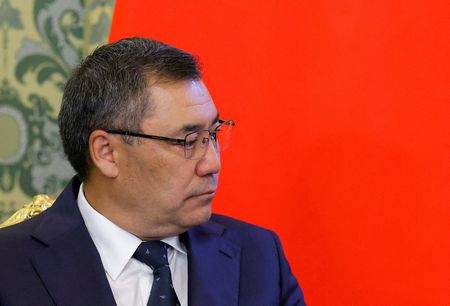TOKYO (Reuters) – Japan’s lower house of parliament is conducting hearings on the government’s nominees for the central bank’s two new deputy governors, Ryozo Himino and Shinichi Uchida.
Himino is former head of Japan’s banking sector watchdog, while Uchida is a Bank of Japan (BOJ) executive. Following are excerpts from their comments, in Japanese, as translated by Reuters:
Uchida:
“Domestic and overseas uncertainties regarding Japan’s economy remain very high. Consumer inflation hit 4.2%, well exceeding the BOJ’s 2% target, but this is due mostly to companies passing on higher raw material costs to households…
“It’s necessary to support Japan’s economy by maintaining the current ultra-loose policy.
“While the ultra-loose policy is having a negative impact on financial institutions’ profits, the overall benefits of stimulus are exceeding the costs.
“Instead of reviewing the ultra-loose policy just because there are side-effects, the BOJ must come up with ideas to mitigate the cost and sustain the policy.”
ON WHETHER END TO NEGATIVE INTEREST RATES WILL BE DISTANT
“The BOJ’s current interest rate target levels, including the negative short-term rate, are appropriate. If Japan can foresee inflation reaching 2%, the target levels could be reviewed. But that won’t come immediately.”
ON BOJ’S EXIT POLICY
“It’s premature to discuss an exit because we can’t foresee inflation sustainably and stably achieve 2% yet. As for a future exit, the key would be how to adjust interest rates and its huge balance sheet. In what order the BOJ does this, and at what pace, will depend on market conditions at the time.
“I have been involved in the drafting of the BOJ’s current policy, and I can say we thought about an exit strategy when we introduced the ultra-loose policy. So, it’s possible for the BOJ to exit smoothly regardless of economic, price and market conditions at the time.”
ON SIDE-EFFECTS OF YIELD CURVE CONTROL
“The biggest side-effects could be the impact on financial institutions and markets… We hope to come up with ways to mitigate such side-effects as much as possible.
“If I were to be approved as next deputy governor, I hope to come up with various ideas on policy… At present, I hope to put YCC at the centre of our easy monetary policy.”
Himino:
“We must achieve the inflation target sustainably and stably along with wage hikes.
“We need to carefully monitor financial intermediation and side-effects of easing in addition to the economy and prices.
“We’re not in a situation where we have specific concerns over Japan’s financial system stability … But we must carefully monitor the situation to look out for potential financial imbalances or vulnerabilities.
“The BOJ’s mandate is to achieve price and financial stability. My role will probably be focused more on the latter. But in pursuing price stability, the effect of the BOJ’s monetary policy steps will be transmitted via a sound financial system. I hope to look closely at what is happening with the transmission channel of monetary policy.
“Uncertainty regarding overseas economies is very high, so we need to closely watch the impact on Japan’s economy. At present, it’s important to maintain the current ultra-easy policy.
“For now, the benefits of ultra-easy policy are exceeding the cost, so it’s important to sustain the current policy … There are various possibilities. As such, the BOJ must consider various scenarios and respond flexibly on policy as needed.
“I don’t think it’s immediately necessary to change language” (on the BOJ’s joint statement with the government).
(Reporting by Leika Kihara; Editing by Subhranshu Sahu)

